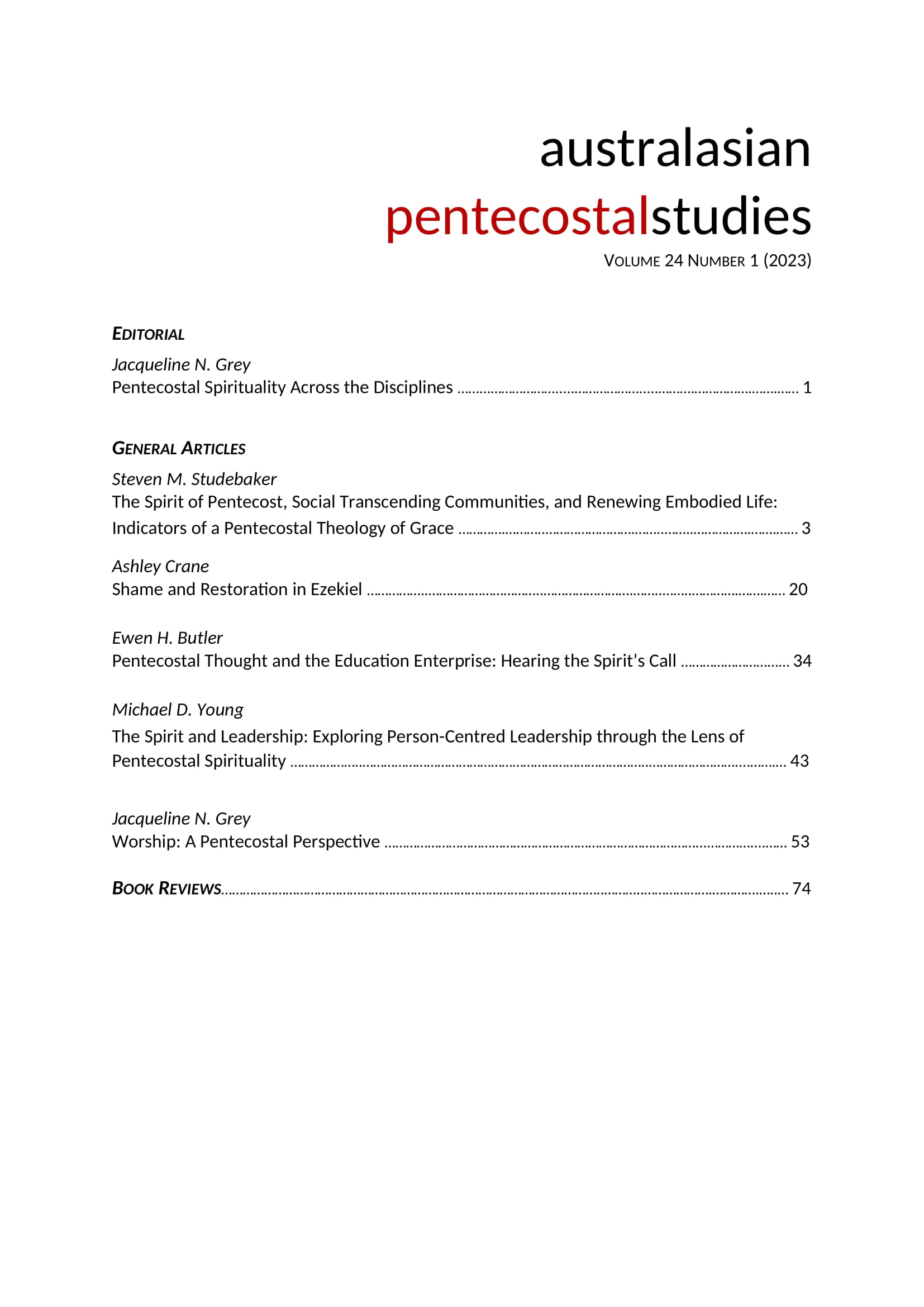Review of Wolfgang Vondey, The Scandal of Pentecost: A Theology of the Public Church
Abstract
The bifurcation of theory and practice within theological pursuits has contributed to the privatization of faith since the Enlightenment Era. Such segregation generates individualistic and ahistorical hermeneutical methods. Theological endeavors dependent upon the segmentation of theory and practice produce theological methodologies incapable of supporting theology in the public realm. Wolfgang Vondey advocates in The Scandal of Pentecost: A Theology of the Public Church a robust public theology will require embracing ecclesiological structures whereby Pentecost serves as the primary theological and public narrative. Vondey proposes a repositioning of Pentecost as a public expression of faith, arguing that the prevailing portrayals of Pentecost as a predominantly private affair fall short of capturing the fullness of the Pentecost narrative. Repositioning Pentecost in a public sphere exposes the resistance from those in the marketplace who are unable to harmonize the existing social and religious norms with the claims by the disciples that Christ poured out the Spirit upon all flesh. It is this tension that Vondey classifies as the Scandal of Pentecost.
Downloads
Published
How to Cite
Issue
Section
License
Authors who publish with this journal agree to the following terms:
- Authors retain copyright and grant the journal right of first publication with the work simultaneously licensed under a Creative Commons Attribution License that allows others to share the work with an acknowledgement of the work's authorship and initial publication in this journal
- Authors are able to enter into separate, additional contractual arrangements for the non-exclusive distribution of the journal's published version of the work (e.g., post it to an institutional repository or publish it in a book), with an acknowledgement of its initial publication in this journal.
- Authors are permitted and encouraged to post their work online (e.g., in institutional repositories or on their website) prior to and during the submission process, as it can lead to productive exchanges, as well as earlier and greater citation of published work (See The Effect of Open Access).


